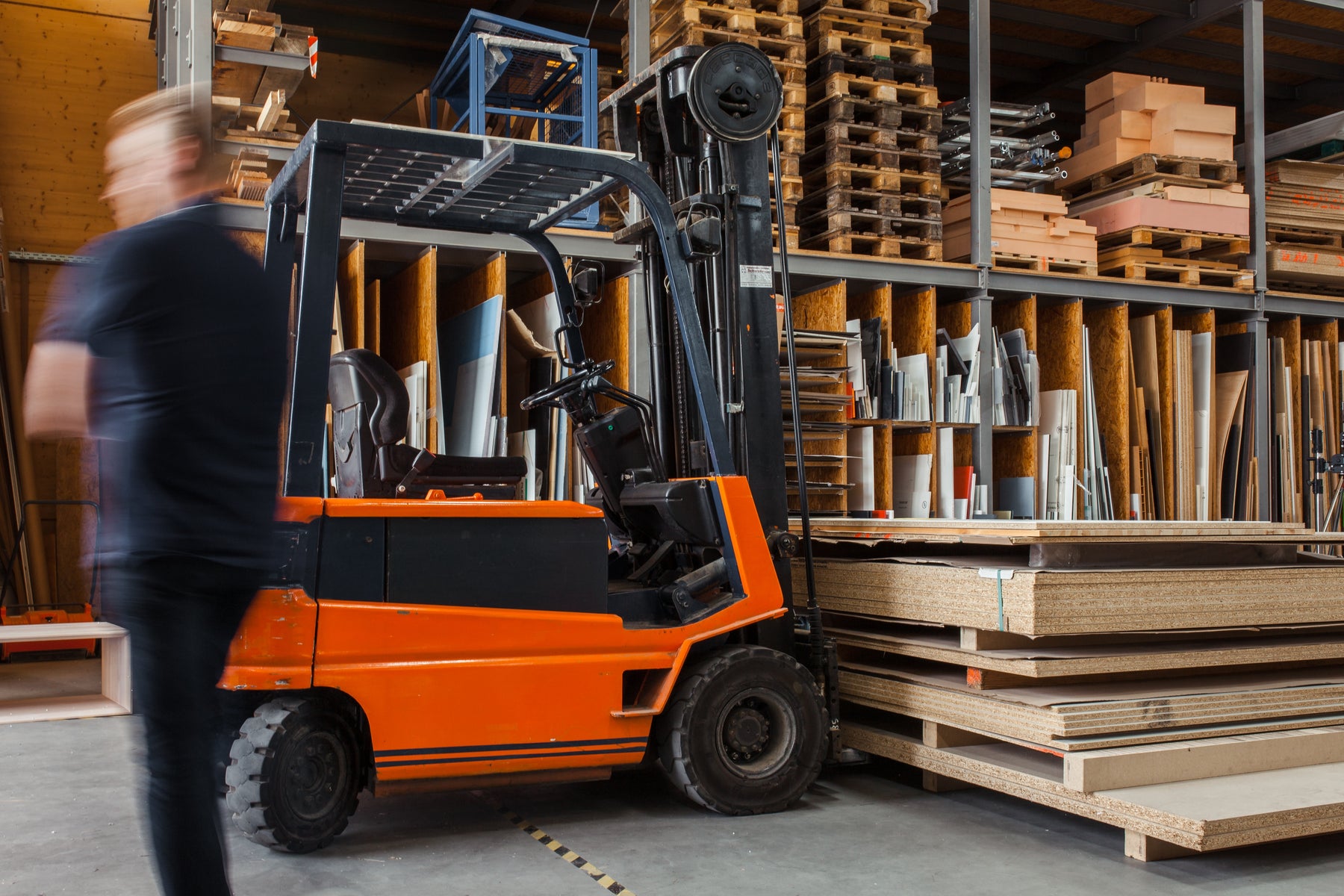
The Importance of Forklift Safety in Modern Warehouses
Introduction:
Forklift trucks are powerful and indispensable tools, they play a vital role in material handling operations enabling efficient movement of heavy loads in various industries for efficient material handling. However, their size, weight, and potential for accidents make forklift safety a critical concern. Prioritizing forklift safety is not only essential for protecting employees but also for preventing damage to property, reducing downtime, and avoiding costly legal liabilities. In this blog post, we will explore the utmost importance of forklift safety and reasons why organizations should prioritize the well-being of operators and those working in proximity to forklift operations and their benefits it brings to businesses, and Industries.
1. Preventing Workplace Accidents:Forklifts, if not operated safely, can cause severe accidents that result in injuries or even fatalities. By prioritizing forklift safety, businesses can significantly reduce the risk of workplace accidents. Accidents such as collisions with pedestrians, tip-over’s, and falling loads can be mitigated through proper training, adherence to safety guidelines, and maintaining material handling forklifts in optimal working condition. This not only protects the well-being of employees but also creates a culture of safety within the organization. By implementing safety protocols, training programs, and adherence to regulations, businesses can mitigate the potential for accidents and create a safer working environment.
2. Protecting Employee Health and Well-being:Forklift truck operators are at the forefront of forklift safety. Forklift operators require comprehensive training to develop the skills necessary for safe operation, including knowledge of forklift controls, load capacity limits, and maneuvering techniques. Prioritizing forklift truck safety ensures operators have the knowledge and tools they need to protect themselves from hazards. Forklift safety includes proper utilization of personal protective equipment (PPE), understanding the limitations of forklifts, and maintaining a vigilant approach to their surroundings. By investing in forklift operator safety, organizations not only reduce the risk of injuries but also demonstrate their commitment to the well-being of their workforce.
3. Minimizing Property Damage:Forklift truck accidents can result in significant property damage, including infrastructure, equipment, and stored inventory. A single accident can lead to substantial financial losses and operational disruptions. Prioritizing forklift safety reduces the likelihood of accidents that could damage valuable assets. With proper training, safe operating procedures, and preventive maintenance, businesses can minimize property damage and avoid costly repairs or replacements.
4. Enhancing Productivity and Efficiency:A safe work environment directly contributes to increased productivity and operational efficiency. When employees feel secure and confident in their workplace, they can focus on their tasks without unnecessary distractions or concerns about safety. By prioritizing forklift truck safety, businesses can avoid work stoppages due to accidents or injuries, leading to uninterrupted workflow and optimized productivity levels.
5. Enhanced Productivity and Efficiency:- Reduced Downtime: Forklift truck accidents and injuries lead to work disruptions and downtime, impacting productivity. Prioritizing forklift safety minimizes the occurrence of accidents, resulting in uninterrupted operations and increased productivity.
- Efficient Material Handling: Proper training and adherence to safety protocols enable operators to handle loads efficiently, reducing the risk of damage to goods, optimizing workflows, and ensuring timely deliveries. A safe work environment enhances the overall efficiency of material handling operations.
- Employee Morale and Engagement: Prioritizing forklift truck safety fosters a positive work culture, demonstrating an organization's commitment to employee well-being. When employees feel safe and supported, they are more engaged, productive, and motivated to contribute to the success of the organization.
Forklift safety is not only a matter of responsible business practice but also a legal requirement. Regulatory bodies such as OSHA (Occupational Safety and Health Administration) in the United States and local labor authorities enforce strict regulations governing forklift operations. By prioritizing forklift safety, businesses ensure compliance with these regulations, avoiding potential penalties, fines, or legal consequences that could arise from non-compliance.
7. Positive Brand Image and Reputation:Prioritizing forklift safety not only benefits employees and the organization but also enhances the company's brand image and reputation. Demonstrating a commitment to safety sends a positive message to clients, partners, and stakeholders. It conveys the organization's values, professionalism, and responsibility towards ensuring the well-being of its employees and the communities in which it operates.
Conclusion:
Forklift safety is of utmost importance in any industry that relies on these powerful material handling machines. By prioritizing forklift safety, businesses can prevent workplace accidents, protect employee health and well-being, minimize property damage, enhance productivity, and ensure compliance with regulations. A safe work environment promotes a positive company culture, fosters employee satisfaction, and establishes a strong brand image. Ultimately, investing in forklift safety is not only the responsible thing to do but also a smart business decision with long-term benefits for all stakeholders involved.
Image 01 - Forklift | Credits: Images from unsplash by Pickawood: https://unsplash.com/photos/6tAIO3pxde4



